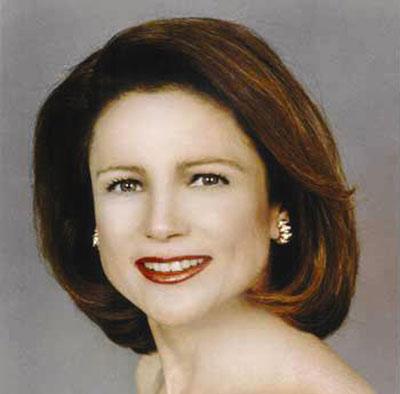From Canvas to Stage at Guild Hall

“The Painting Plays,” a group of short plays by leading playwrights, all inspired by paintings from prominent East End artists, will be given staged readings on Saturday at Guild Hall at 8 p.m. by a stellar group of actors including Blythe Danner, Melissa Errico, Harris Yulin, and Tovah Feldshuh.
It is a concept close to Ms. Feldshuh’s heart.
“The goal is to cross-pollinate local artists with writers and actors,” she said on Sunday.
It is the kind of experimentation in her art form that Ms. Feldshuh lives for. Like a musician, softly riffing on a guitar, even when not playing music, Ms. Feldshuh is constantly exploring character.
She has portrayed many great women in her career — among them Golda Meir and Tallulah Bankhead — frequently in one-woman shows. Last Sunday, as she spoke about the idea of one art form influencing another, she gave an example from her own one-woman show, as she began to sing.
“Starry, starry night.
Paint your palette blue and gray,
Look out on a summer’s day,
With eyes that know the darkness in my soul.”
The song is “Vincent (Starry Starry Night),” written by Don McLean, as inspired by Vincent Van Gogh’s “The Starry Night.”
But it is not Ms. Feldshuh we hear singing, it is Mariane Pearl, wife of Daniel Pearl, the journalist who was kidnapped, tortured, and killed by terrorists in Pakistan in 2002.
Ms. Feldshuh stops singing, remembering what Ms. Pearl had said to her years ago. “I will not let these barbarians see me grieve,” Ms. Feldshuh says, in character as Ms. Pearl.
Ms. Feldshuh was born in New York City in 1952 and grew up in Scarsdale, N.Y. When she first decided to act, Terri Sue Feldshuh had to chose a stage name. Every actor has to choose a unique name when joining the actors union, Actor’s Equity Association. The name must be unique, to prevent confusion in the business.
The name Ms. Feldshuh chose was Terri Fairchild. It was still commonplace at that time for Jewish actors to choose anglicized names. Then Ms. Feldshuh fell in love with a blonde-haired boy from Cold Spring Harbor. She told him her chosen stage name.
“He said, ‘What kind of name is that for a girl like you?’ ”
She told him her Hebrew name, Tovah.
“Tovah Feldshuh, that’s a name,” he said. The romance didn’t last but the name did.
She trained as a Shakespearean actor at the Guthrie Theater. Her breakthrough role on Broadway was as the original Yentl in 1975, directed by Robert Kalfin and based on a short story by Isaac Bashevis Singer.
She was then offered a part in the groundbreaking miniseries, “Holocaust,” directed by Marvin Chomsky. Mr. Chomsky’s previous effort, “Roots,” had introduced the concept of the miniseries to television.
The subject of the Holocaust had previously been taboo on commercial television. The miniseries drew record audiences, and was shown in Germany and Austria, the first time for many young people in those lands that the subject of their country’s role in the Holocaust had been broached.
The series was controversial, but Ms. Feldshuh recalled the words of General Dwight D. Eisenhower at the conclusion of World War II, when he had film crews go into the death camps as they were liberated. When asked why, he answered, “Because some son of a bitch will come along and say this never happened.”
Married, with two grown children, Ms. Feldshuh does not shy away from choosing political or controversial roles.
She jokes, “It’s been a privilege to change my name and have Middle East politics fall onto my head.”
She is currently working on two different projects, both centering on the Mossad, the Israeli security and intelligence agency.
Her hope for the Middle East is, if nothing else, that “They exhaust themselves into peace,” similar to the way the English and Irish, after so many years of bloody conflict, have come to terms.
When not working in theater or film, she dedicates much of her time to outreach programs for the young.
“I volunteer for Art Start. We bring arts programs to at-risk New York City kids. We teach music, dance, and the visual arts to children in homeless shelters,” as well as working with children in the prison system, “helping them to express themselves through art.”
She will be doing a benefit for the program at the Zankel Auditorium at Carnegie Hall on Oct. 14.
But right now, her creative focus is on the staged readings at Guild Hall on Saturday.
The two pieces she will be doing Saturday are by Jenny Lyn Bader, inspired by a painting by April Gornik, and J. Stephen Brantley, who drew inspiration from a work by Jane Wilson. The other authors whose short plays are being read are Joe Pintauro, Marsha Mason, and Lucy Boyle, with inspiration coming from the painters John Alexander, Eric Fischl, Eric Dever, and Clifford Ross.
